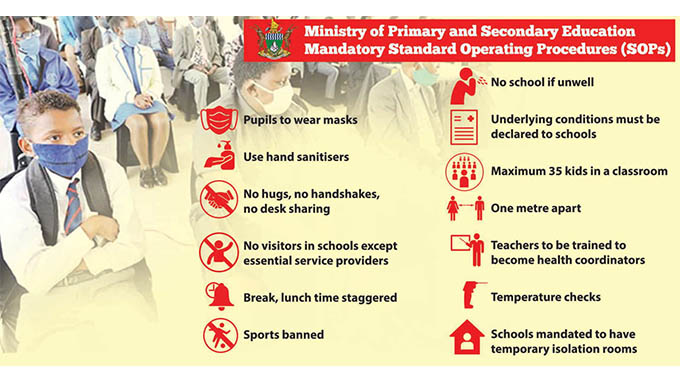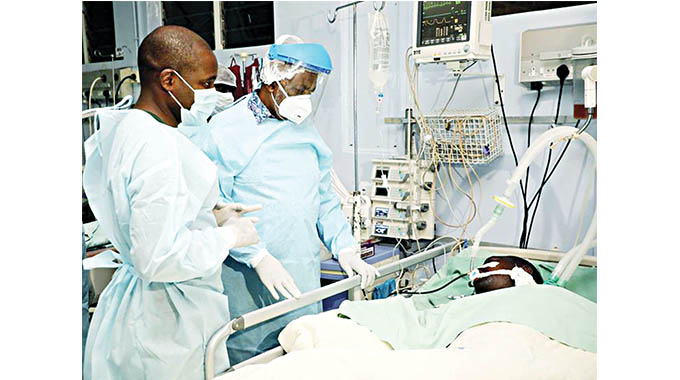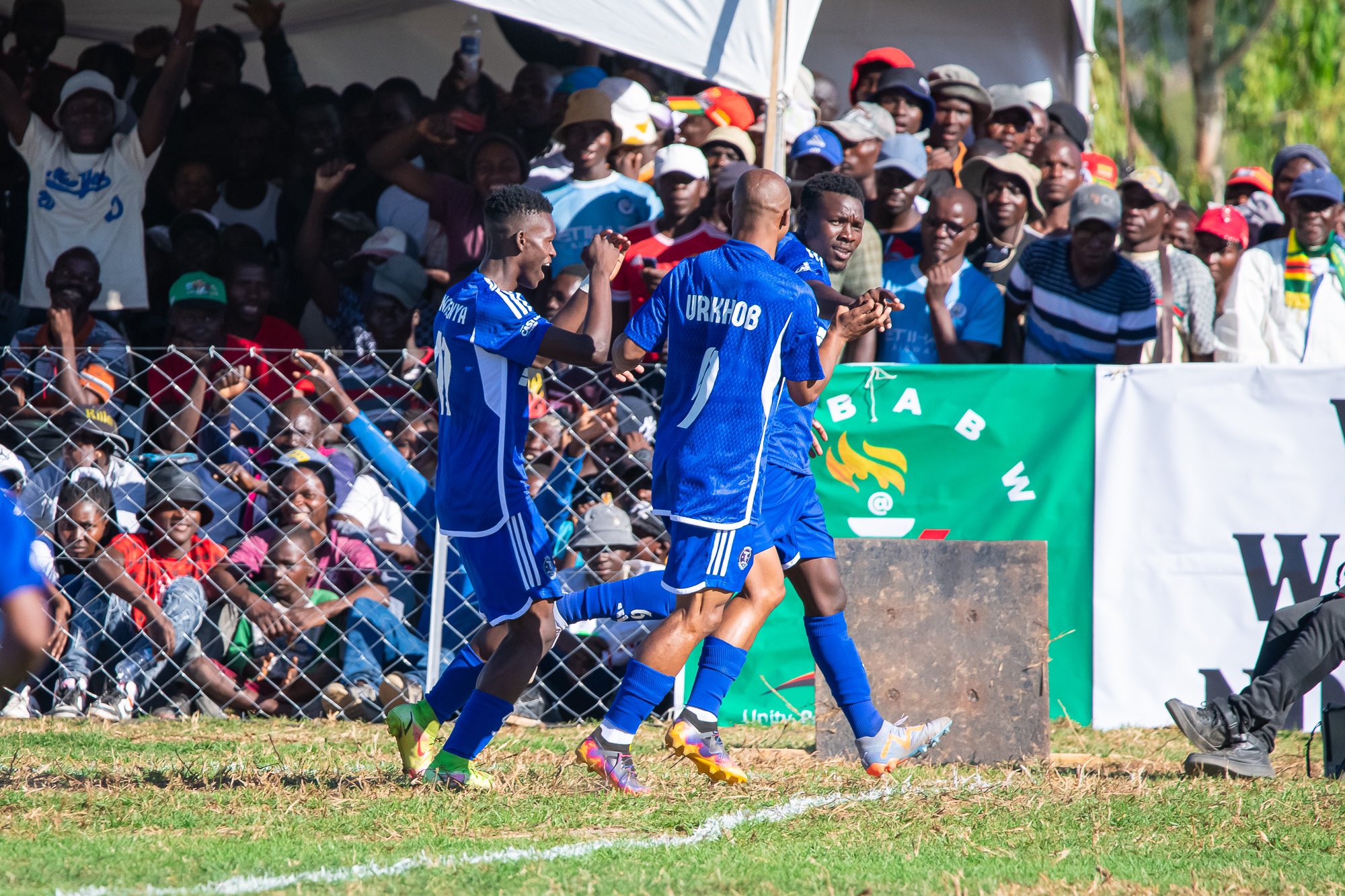New normal in schools

Nqobile Tshili, Chronicle Reporter
TEACHERS and learners should brace for a new normal ahead of schools reopening and forget customs such as hugs, handshakes and sharing of desks as they used to.
Break and lunch time will be staggered to prevent crowding by learners while sporting activities will be banned when schools reopen for exam-writing classes next week Monday.
In the past pupils or teachers who were not feeling well could attend classes but in the new normal this will be prohibited as the Ministry of Primary and Secondary Education has adopted a stay at home policy for those feeling unwell until they recover.
This is contained in the Ministry of Primary and Secondary Education mandatory Standard Operating Procedures (SOP) designed to guide schools as they prepare for reopening.
The Ministry of Primary and Secondary Education released SOP on Thursday in response to Covid-19 and compliance to World Health Organisation and Ministry of Health and Child Care, coronavirus prevention regulations.
Covid-19 is known to be more deadly among those with underlying diseases, hence schools will now be required to keep records for teachers and pupils with underlying conditions without stigmatising them.
A maximum of 35 pupils will be permitted in a single classroom as learners and teachers will be required to maintain a physical or social distance of one metre at the school premises.
Schools prematurely closed in March and have remained closed as Government took measures to prevent the spread of Covid-19.
However, examination classes are expected to reopen on Monday for those sitting for Cambridge examinations while Zimbabwe School Examinations Council (Zimsec) candidates will reopen on September 28.
Zimsec public examinations will start on December 1, as Government is employing a combination of face-to-face and distance learning to bridge the gap that has seen learners being out of school for five months.
In preparing for the new normal, teachers would be trained to become health co-ordinators by the Ministry of Health and Child Care, to enable them to monitor health related matters in the learning institutions.
Temperature checks will be conducted while schools will be mandated to have temporary isolation rooms for those found with high temperatures, before they are referred to heath facilities.
“In line with the Zimbabwe School Health Policy, every school should be linked to a specific clinic or team from the Ministry of Health and Child Care service providers. Through this system, schools should develop effective communication with their allocated health teams to facilitate the care of unwell learners and staff,” read the document.
In case a pupil or staff member contract Covid-19 or become a contact of a positive person they will be required to self isolate for two weeks, before being cleared to return to school.
No other visitor will be allowed in schools except essential service providers.
Physical distancing of at least one metre will be adhered to both teachers and learners while minimising sharing of education stationery including textbooks.
“Teachers and learners should be encouraged to maintain a distance of at least one metre between everyone present at school or college.
“The sitting arrangement in every classroom and in the staff room should be such that there is a distance of one metre from one individual to another. In order to achieve this, there should be one learner at each desk or the school should improve the ‘desk and chair’ approach. A standard sized classroom should therefore not accommodate more than 35 learners,” reads the document.
Hot seating will be encouraged to decongest schools even as examination classes return to school.
Before Covid-19, hot seating was mainly employed by highly congested schools which could not accommodate all learners in one learning session as some pupils would come in the morning while others in the afternoon.
Surfaces such as door handles, desks, toys, light switches, door frames will be frequently disinfected as part of the SOP to prevent the spread of Covid-19.
Parents can be engaged in the cleaning of schools in cases where learning institutions cannot afford to pay workers. – @nqotshili











Comments